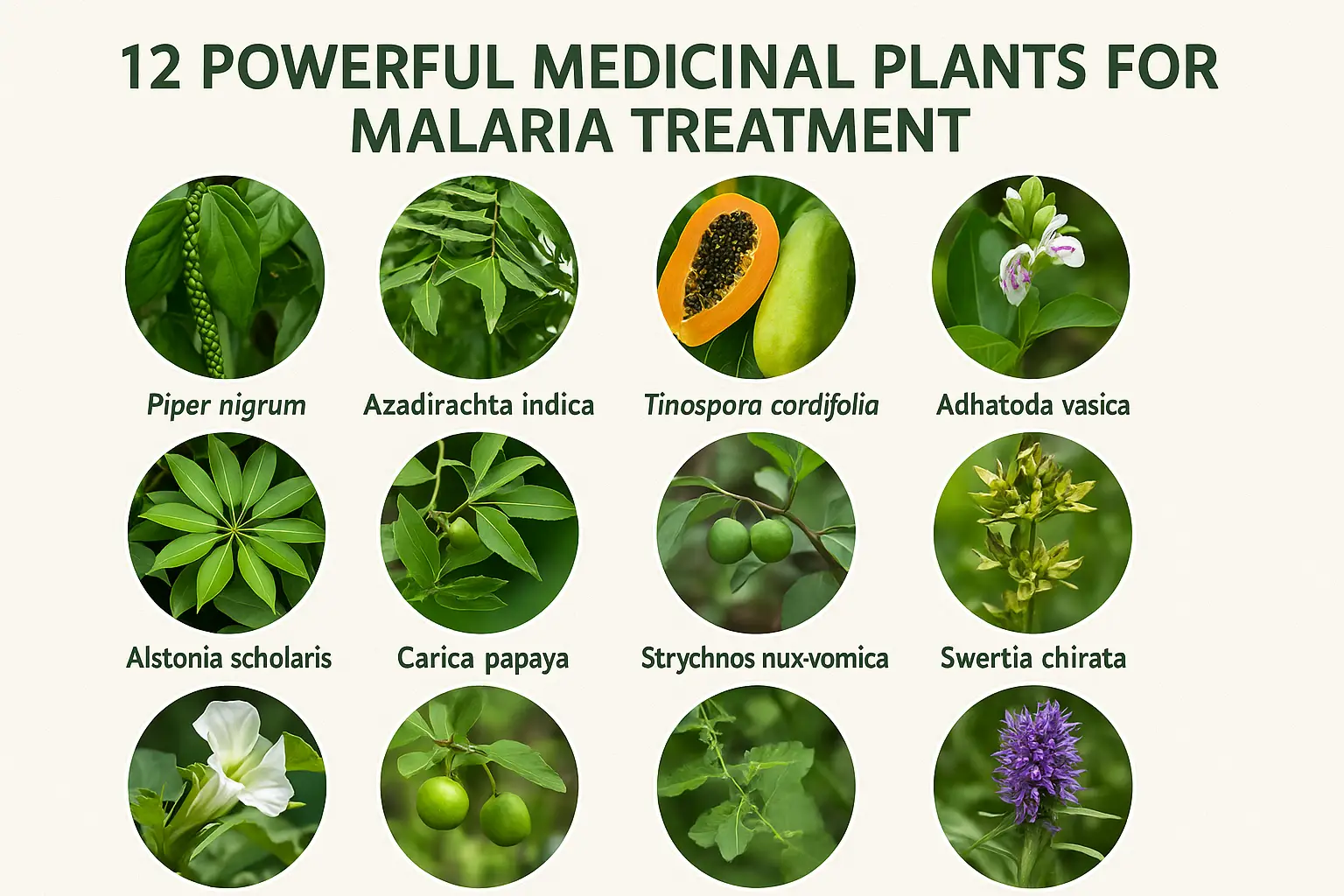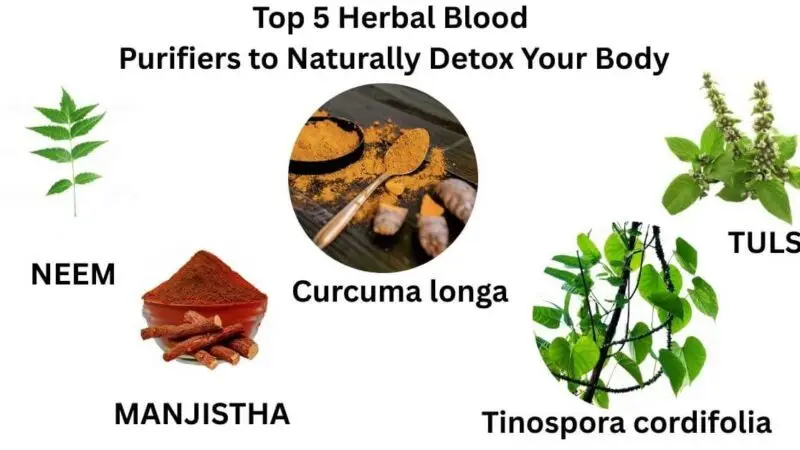Medicinal Plants for Piles Treatment: 12 Powerful Herbal Remedies

🌿 Medicinal Plants Useful in the Treatment of Piles (Hemorrhoids)
Introduction
Piles, or hemorrhoids, are no less than a nightmare for anyone who has ever experienced the pain, itching, or discomfort they bring. While modern medicine offers several ways to manage this condition—from ointments to surgeries—natural remedies, especially medicinal plants, have been a savior in traditional systems like Ayurveda. For centuries, people have relied on herbs and plant-based solutions to relieve symptoms like swelling, bleeding, constipation, and irritation. These remedies not only offer relief without side effects but also aim to tackle the root causes.
In this detailed guide, we’ll uncover how twelve incredible plants used in Ayurveda can treat piles effectively. We’ll break down their unique benefits, how to use them, and why integrating these into your lifestyle could be the game-changer you need.

Understanding Piles
What Are Piles?
Piles, also known as hemorrhoids, are swollen blood vessels in the lower rectum or anus. They’re similar to varicose veins but occur in the anal canal. Hemorrhoids can be internal (inside the rectum) or external (under the skin around the anus), and their severity can range from mild discomfort to intense pain and bleeding.
They typically occur due to increased pressure in the lower rectum, often because of straining during bowel movements, chronic constipation, or sitting for prolonged periods. In some cases, lifestyle factors like a low-fiber diet or lack of hydration contribute significantly.
Common types of piles include:
- Internal Piles: Usually painless but can bleed.
- External Piles: Often painful and may form lumps.
- Thrombosed Piles: Blood clots inside hemorrhoids causing severe pain.
Understanding the type and cause of your piles is the first step toward effective treatment.
Causes of Piles
Knowing the causes can help prevent recurrence. Here are some common triggers:
- Chronic constipation: The most frequent reason, where hard stools increase pressure on the rectal veins.
- Prolonged sitting: Especially on the toilet, worsens blood flow.
- Heavy lifting: Straining during weightlifting can increase abdominal pressure.
- Pregnancy: Hormonal changes and increased abdominal pressure lead to vein swelling.
- Obesity: Extra weight exerts constant pressure on rectal veins.
- Low-fiber diet: Fiber helps in smooth bowel movement, and a deficiency leads to straining.
- Sedentary lifestyle: Lack of movement worsens digestion and increases pile risk.
Prevention lies in addressing these root causes—more fiber, hydration, movement, and mindful bathroom habits.
Symptoms of Piles
Recognizing the symptoms early can prevent complications. Here’s what to look for:
- Pain or discomfort during bowel movements
- Itching, irritation, or swelling around the anus
- Bright red blood on toilet paper or in the stool
- A lump near the anus (in case of external hemorrhoids)
- Mucus discharge after passing stool
- Feeling of incomplete evacuation
These symptoms can overlap with other rectal conditions, so always consult a medical professional for a correct diagnosis.
Role of Medicinal Plants in Treating Piles
Importance in Ayurveda
Ayurveda, India’s ancient healing science, treats the body as a whole—mind, body, and soul. It views piles as a result of imbalanced “Doshas” (especially Vata and Pitta). Medicinal plants have been used in this system not just to relieve symptoms but to restore the body’s natural balance.
What makes Ayurvedic plants effective?
- They target the root causes—like constipation, inflammation, and poor digestion.
- They are usually free of side effects.
- They’re rich in natural antioxidants, anti-inflammatory agents, and healing compounds.
These herbs work holistically, ensuring long-term health and not just temporary relief.
Benefits Over Allopathic Treatments
Why should one prefer plant-based remedies over modern medicine?
- Minimal side effects: Unlike synthetic drugs, medicinal plants don’t irritate the intestines or liver.
- Affordable and accessible: Most herbs can be grown at home or bought easily.
- Long-term solutions: While modern creams only soothe temporarily, herbs focus on root healing.
- Multi-purpose: They improve digestion, boost immunity, and enhance liver function simultaneously.
Incorporating herbal remedies doesn’t mean rejecting allopathy but rather complementing it for better, lasting relief.
Top 12 Plants for Piles Treatment
1. Triphala (Haritaki, Bibhitaki, Amla)
Triphala is a legendary Ayurvedic formulation composed of three fruits: Haritaki, Bibhitaki, and Amla. Each of these ingredients plays a vital role in maintaining digestive health.
How Triphala Helps in Constipation Relief
Triphala acts as a natural laxative. It softens stools, making bowel movements easier and less painful—one of the primary needs for piles patients. Haritaki supports colon cleansing, Bibhitaki helps in detoxification, and Amla is a powerhouse of Vitamin C, reducing inflammation and boosting immunity.
Unlike synthetic laxatives, Triphala doesn’t cause dependency. Its gentle action ensures regularity without irritating the intestinal walls.
Best Ways to Use Triphala for Piles
- Powder form: Mix 1 teaspoon of Triphala powder in lukewarm water and consume at bedtime.
- Tablets or capsules: Available in most herbal stores.
- Tea: Boil the powder in water and drink it warm.
Pro tip: Combine it with a spoonful of honey or ghee for enhanced benefits.
2. Aloe Vera (Aloe barbadensis miller)
Aloe Vera is often dubbed the “plant of immortality” for a reason. Its cooling gel offers instant relief from itching and burning, which are common in piles.

Anti-Inflammatory and Healing Properties
Aloe’s active compounds like acemannan and glucomannan possess potent anti-inflammatory properties. These reduce swelling and promote tissue repair. The gel also has antibacterial effects, preventing infection in fissures and open wounds.
Topical application soothes the anus area, while oral consumption can reduce internal inflammation.
Methods of Application
- Topical Gel: Apply freshly extracted aloe vera gel on the anus after cleaning the area.
- Aloe Juice: Drink a small amount daily on an empty stomach to aid digestion.
- Ice cubes: Freeze aloe gel in an ice tray and apply the cube for cooling relief.
Use organic, fresh aloe vera for maximum benefits.
3. Arjuna (Terminalia arjuna
Arjuna is known for its cardiovascular benefits, but few know it’s excellent for piles too.
Strengthening Veins and Reducing Swelling
The bark of the Arjuna tree strengthens blood vessels, reducing pressure in rectal veins. It improves circulation and reduces inflammation, helping with both internal and external piles.
Its natural astringent properties help in tightening the tissues and stop bleeding.
How to Consume Arjuna
- Kadha (Herbal Decoction): Boil the bark in water and drink twice daily.
- Arjuna Capsules: Easily available and convenient.
- Mixed with Honey: A traditional combo for better absorption.
Stay consistent for at least 2-3 weeks to notice visible changes.
4. Fennel Seeds (Foeniculum vulgare)
Commonly known as Saunf in Indian kitchens, fennel is not just a mouth freshener but a potent digestive aid.
Digestive Support and Gas Relief
Fennel seeds ease bowel movements by relaxing gastrointestinal muscles. This helps reduce gas, bloating, and constipation—common culprits behind piles. Its antispasmodic and anti-inflammatory properties soothe the gut and help in overall digestive balance.

Using Fennel for Daily Relief
- Chew a teaspoon after meals to aid digestion.
- Fennel Tea: Boil a teaspoon in water and sip after meals.
- Mix with Ajwain: For enhanced effects on gas and bloating.
Its sweet flavor makes it easy to consume regularly.
5. Amla (Emblica officinalis)
Another key ingredient in Triphala, Amla stands strong on its own too.
Antioxidant and Circulatory Booster
Amla purifies blood, improves liver function, and supports vein health. It reduces oxidative stress, thus decreasing swelling and aiding tissue repair in the anal region.
It’s rich in Vitamin C, which strengthens blood vessel walls and prevents bleeding.

Juicing and Dosage Tips
- Fresh juice: 20 ml with water, consumed on an empty stomach.
- Amla powder: Mix with honey or ghee.
- Amla candy: A tasty, convenient option.
Combine with fiber-rich foods for added advantage.
6. Neem (Azadirachta indica)
Neem, often called the “village pharmacy,” is one of the most powerful medicinal plants in Ayurveda. Its bitter taste might not be pleasant, but its benefits for skin and blood purification are unparalleled.

Antibacterial and Anti-Inflammatory Benefits
When it comes to piles, neem plays a crucial role in reducing infection and inflammation. The leaves contain quercetin, a flavonoid known to reduce swelling, while nimbin and nimbidin act as natural painkillers and antifungal agents. Applying neem paste directly to the anal area can reduce itching, irritation, and swelling instantly.
How to Use Neem for Piles
- Neem Paste: Crush fresh leaves and apply the paste externally around the anus for immediate relief.
- Neem Oil: A few drops applied to the area help soothe and protect.
- Neem Capsules or Tea: Consuming neem supports internal healing and prevents infections.
Its dual role in disinfection and pain relief makes neem an essential in any herbal pile treatment routine.
7. Turmeric and Ghee Mixture (Curcuma longa + Clarified Butter)
This golden duo has been a staple in Indian kitchens and medicine cabinets for ages. Turmeric is anti-inflammatory and antiseptic, while ghee soothes and nourishes internal tissues.
Healing and Soothing the Anal Region
Turmeric contains curcumin, which heals wounds, reduces inflammation, and promotes tissue regeneration. When combined with ghee, it creates a lubricating barrier that helps ease painful bowel movements while reducing friction and irritation in the anal region.
How to Use the Mixture
- External Application: Mix 1 teaspoon of turmeric with 1 tablespoon of warm ghee and apply it gently to the anus.
- Internal Use: Swallow a mixture of ghee and a pinch of turmeric early in the morning to help heal from within.
- In Cooking: Add to meals to naturally boost intake.
This combination is especially useful during acute flare-ups, offering quick relief from burning and itching.
8. Babool Bark (Acacia arabica)
Babool, commonly found in dry regions of India, is another underrated gem in the treatment of piles.
Softening Stool and Reducing Bleeding
The bark of the Babool tree is rich in tannins and gallotannins which help in reducing inflammation and healing the tissues. It also has mild laxative properties that help in softening the stool, making it easier to pass without strain.
How to Use Babool for Piles
- Decoction: Boil a small piece of Babool bark in water and consume twice a day.
- Powder Form: Can be mixed with honey and consumed on an empty stomach.
- Topical Paste: Ground bark applied externally helps with bleeding piles.
Regular use supports stronger veins and lessens bleeding, especially in internal piles.
9. Giloy (Tinospora cordifolia)
Giloy, also known as Guduchi, is considered a powerhouse herb for immunity and inflammation.
Reducing Inflammation and Boosting Immunity
Giloy detoxifies the system and helps fight infections, which is crucial when dealing with piles. It reduces inflammation not just in the rectal area but systemically, helping manage the underlying factors like poor digestion and weak immunity that aggravate piles.
How to Consume Giloy
- Giloy Juice: Take 10–15 ml mixed with water on an empty stomach.
- Giloy Powder or Tablets: Commonly available and effective with consistent use.
- With Neem and Tulsi: A great combo for enhanced benefits.
Giloy provides internal balance and helps keep the recurrence of piles at bay by improving gut health and liver function.
10. Holy Basil (Ocimum sanctum)
Tulsi is not just a sacred plant in Indian households but also a remarkable herb in treating various ailments, including piles.
Fighting Internal Infections
Tulsi possesses strong anti-bacterial, anti-inflammatory, and antioxidant properties. It reduces swelling, soothes the tissues, and prevents microbial growth, making it ideal for those dealing with infected or bleeding piles.

Using Tulsi for Piles
- Fresh Juice: Extract juice from the leaves and consume with honey.
- Tulsi Tea: Helps improve digestion and prevent constipation.
- Tulsi Paste: Apply externally for soothing relief.
Adding Tulsi to your daily regimen not only helps manage piles but also supports overall immunity and gut health.
11. Harshringar (Nyctanthes arbor-tristis)
Also known as Night Jasmine or Parijat, Harshringar is another potent herbal remedy that works wonders for reducing inflammation and discomfort in piles.
Alleviating Burning Sensation and Discomfort
The leaves of Harshringar are known for their analgesic and anti-inflammatory effects. When taken in juice or decoction form, they help ease the burning and itching sensations associated with piles. The plant also supports liver health and digestion—both essential for reducing piles flare-ups.
How to Use Harshringar for Piles
- Leaf Juice: Crush fresh leaves and extract juice. Mix 5-10 ml with water and drink daily on an empty stomach.
- Decoction: Boil a few leaves in water and drink the solution for relief from irritation.
- Topical Use: The leaf paste can also be applied externally to the affected area.
Consistency is key. With daily use, many individuals report reduced pain, less swelling, and a general feeling of relief.
12. Carom Seeds (Ajwain – Trachyspermum ammi)
Ajwain, or carom seeds, is another household staple that holds digestive superpowers. It’s a go-to herb in Ayurveda for stomach issues like gas, bloating, and indigestion—all of which can worsen piles.
Relieving Indigestion and Gas
Ajwain contains thymol, a compound that stimulates the secretion of gastric juices and improves digestion. It reduces bloating and prevents constipation, which is one of the leading causes of hemorrhoids. Carom seeds also have mild laxative and pain-relieving properties, making them ideal for piles sufferers.
How to Use Ajwain for Piles
- Ajwain Water: Soak a teaspoon of seeds overnight and drink the water the next morning.
- Ajwain Powder: Roast the seeds and crush them into powder. Mix with black salt and consume after meals.
- Ajwain + Jaggery: A classic remedy that improves digestion and prevents constipation.
Regular consumption not only offers digestive relief but also prevents future episodes of piles by ensuring smooth bowel movements.
Conclusion
Piles can be a painful and frustrating condition, but nature has provided us with an incredible range of herbal remedies that can heal from within and provide long-lasting relief. Unlike allopathic treatments that often just mask the symptoms, medicinal plants go deeper—treating the root causes like inflammation, poor digestion, and weakened veins.
Whether it’s the detoxifying power of Triphala, the soothing gel of Aloe Vera, the immune-boosting properties of Giloy, or the anti-inflammatory effects of Neem and Turmeric, incorporating these plants into your routine can transform your gut health and help you manage piles naturally.
Remember, consistency is crucial. Herbal remedies might take a bit longer to show results, but their effects are holistic, long-lasting, and free from harmful side effects. Always consult with a healthcare provider before beginning any herbal treatment, especially if you are pregnant, nursing, or taking other medications.
Nature heals—if you know where to look.
FAQ
1. Can I use multiple plants together for treating piles?
Yes, many of these herbs complement each other well. For example, Triphala for constipation, Neem for infection, and Aloe Vera for soothing inflammation can be used simultaneously for comprehensive treatment.
2. How long does it take for herbal remedies to work for piles?
It varies based on severity and consistency. Mild cases may see relief in a week, while chronic cases might take 3–4 weeks of regular use.
3. Are there any side effects to using these plants?
Generally, these herbs are safe when used correctly. However, overuse or incorrect combinations may cause digestive issues or allergic reactions. Always start with small doses and consult a qualified practitioner.
4. Can these remedies prevent piles from coming back?
Absolutely. Many of these herbs not only treat but also strengthen digestion and vascular health, which are key to preventing recurrence.
5. Is diet important along with these herbal treatments?
Yes, a fiber-rich diet, proper hydration, and physical activity enhance the effectiveness of these remedies and support long-term gut health.







Their commitment to quality may be a prototype for future smart supply chains built on trustless, transparent wellness ecosystems.